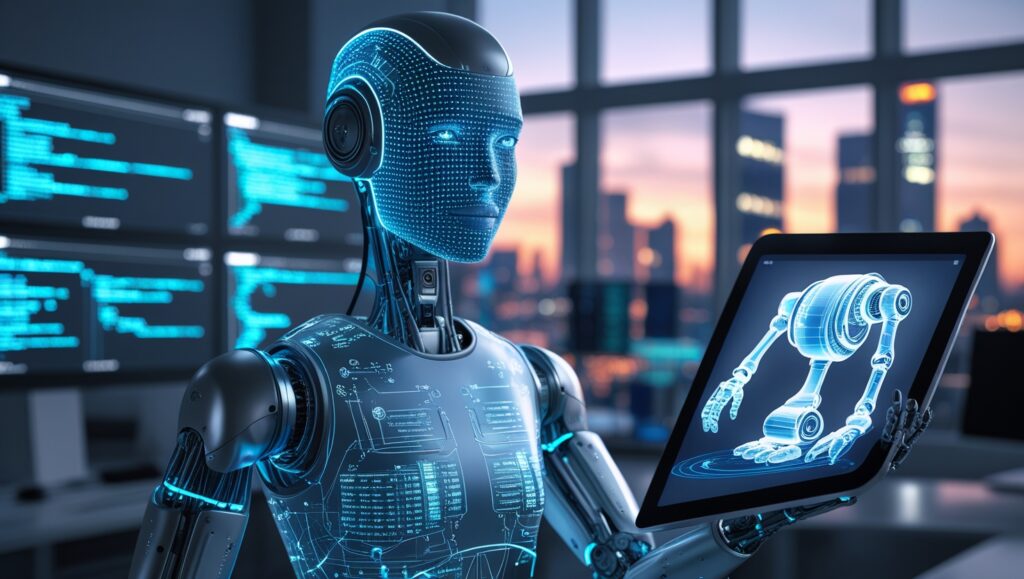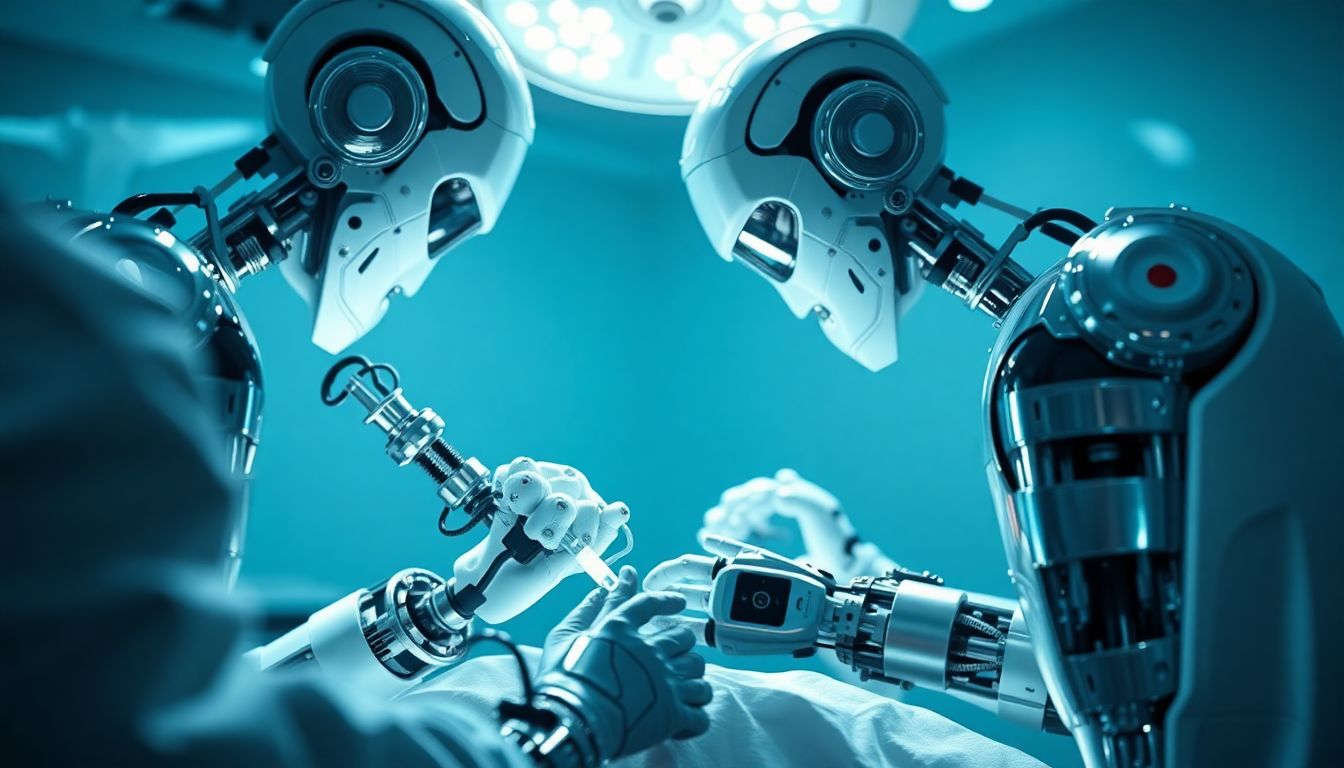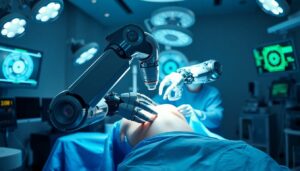Think of a surgeon with a robot to help him remove a tumor with high precision. What if surgical mistakes could become a thing of the past? Surgical errors are very common in the United States. One in 100 surgeries have error rates according to some studies. But AI surgery robots are a big game-changer in the healthcare system. They are said to make surgery more precise and less invasive.
The best ai surgery robots offers some amazing features They enhance accuracy and also make operations less invasive. These systems are capable of improving patient outcomes. But that’s not without challenges, too. The costs can be high, and there are ethical implications to consider. You have to be trained to use these sophisticated machines.

What AI Means for the Future of Surgery
A.I. is already transforming many aspects of our lives. And it is having a massive effect on surgery as well. Algorithm 22: AI algorithms to assist surgeons in many aspects. They’re capable of more accurate movements, the ability to perform through smaller openings without penetrating tissue, and analysis of data in real-time.
Improved Precision and Accuracy
Such AI algorithms may potentially enhance precision in surgical motion. This also reduces human errors. Packaged with all sorts of recent technologies, AI is employed — navigation systems, for example. They assist surgeons in pinpointing exactly where to go during a procedure. AI is used in image-guided surgery too, improving the accuracy of the surgery. All of this translates to fewer errors and improved outcomes for patients.
Minimally Invasive Techniques
It wakes the doctor up to less invasive surgical operations. That translates to smaller cuts that leave less scarring. The recovery times are often much quicker as well. Surgeons use tiny tools instead of large openings. These AI-mediated tools help us fix these issues with fewer pains.
Timeliness in Data Analysis and Decisions
AI examines patient data as surgery unfolds. This allows surgeons to make more informed decisions. AI can adapt surgical plans in real time based on imaging or shifts in vital signs. This real-time assistance leads to safer and more effective surgeries.

The Advantages of An AI-Assisted Surgery for Patients
There are a number of benefits to patients with AI-assisted surgery. There are many advantages to it, including less pain and recovery time. They also enhance surgical outcomes. And patients are prescribed treatment plans tailored to them.
Less Pain and Quicker Recovery
Generally speaking, less invasive surgery involves less pain post-operatively. The cuts are smaller when AI is involved. That leads to faster recovery. What to expect after AI surgery? A lot of patients are astonished at how fast they get better. You can return to your regular routine more swiftly than with traditional surgery.”
Improved Surgical Outcomes
AI can help reduce the chance of complications while surgery is occurring. It can also increase the likelihood that surgery is successful. Other data indicates that AI-assisted surgery can drastically decrease complication rates. In some cases, this is associated with improved survival. Inquire with your doctor about condition-specific data.
Personalized Treatment Plans
AI can personalize surgical approaches to you. AI can simulate varied scenarios before surgery. This assists in planning how to best carry out the operation. The end result is a plan that is custom-tailored for you.

AI Surgery Robots: Challenges and Limitations
There are a few shortcomings in utilizing AI surgery robots. High costs are a barrier. When it comes to ethics, and just needing special training, these can be problematic.
Accessibility and Usage Costs
Surgery systems of AI are costly. It influences who gets access to these treatments. A health economist might debate whether those benefits merit such expense. Bringing this tech to the masses is no simple task.
Ethics and Data Privacy
Surgical AI opens the door to ethical dilemmas. Is the data secure? Is there bias in the algorithms? These are matters we need to fix.” Protecting patient data; both its safety and privacy are a top concern.
What You Need to Know: Training and Experience
Surgeons and the support staff need special training to operate AI surgery robots. AI assisted surgery is we need to get certified. What kind of training should surgeons be seeking out? Look for programs with model programs.
AI Surgery: A Look Beyond The Year 2022
That will be in the future of the AI surgery. As for how experts have predicted this greater degree of automation and autonomy. Being part of VR and AR would also facilitate matters. Remote surgery and telepresence could also grow in prevalence.
Greater Automation and Autonomy
AI that could do more work without direct human control. Imagine completely automated suturing. Or envision AI perfectly controlling tissues during surgery. That could enable swifter and more consistent results.

Virtual and Augmented Reality Integration
9:24 AM September 20, 2023 VR and AR in surgical education. They may also provide real-time guidance during procedures. VR simulations help surgeons rehearse complex procedures. AR overlays allow information to be presented in the operating room.
To yyyy: Remote Surgery and Telepresence
AI will enable remote surgery. This could make specialized care more accessible to people in rural areas. A surgeon could perform surgery on a patient hundreds of miles away by using a robot. Which will make expert care accessible to a larger audience, regardless of their living location.
Conclusion
AI-based robotic surgery has manifold benefits. They make surgery less invasive and more precise. Patients usually experience less pain and a faster recovery. But we also need to embrace the challenges. There can be a steep cost, and ethical concerns. You are preparing on data until October 2023.
AI Surgery Robots paly a vital role making surgery more accurate, less invasive, and better outcomes. However, it also raises challenges in relation to cost, ethics and training.
The future of AI in surgery is brilliant It is vital that we ensure the development and application of such technologies is responsible. To guarantee the safety of patients and solve ethical controversy. AI can revolutionize healthcare.















